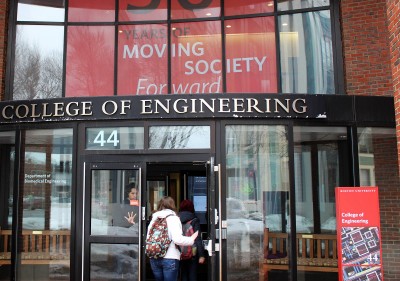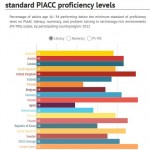U.S. Rep. Joe Kennedy III joined the Latino STEM Alliance on Monday for a roundtable regarding expanding access to education in science, technology, education and math fields. The collaboration took place following the reintroduction of Kennedy’s STEM Gateways Act, which would ensure that federal STEM efforts are put toward reaching minorities, women and low-income communities, according to a Monday press release.

Many other entrepreneurs and leaders in the education community were present at the roundtable, including Lawrence Mayor Dan Rivera, Latino Nursing Association President Judy Cullinane and Care.com co-founder and president Donna Levin, the release stated.
Reinier Moquete, co-founder of the Latino STEM Alliance and CEO of Advoqt Technology Group, said in the release he hopes bringing together so many stakeholders will yield creative ideas about bringing STEM education to Latino students of all ages, backgrounds and interests.
“From Roxbury and Mattapan to Lawrence and Worcester, we can inspire the next generation of STEM workers by providing them with hands-on experience and partnerships with local mentors,” he said.
Marta Montleon, superintendent of Diman Regional Vocational Technical High School in Fall River, was also present at the roundtable and argued that although the push for more STEM education is relatively new, the need to address this issue has been imperative for a long time.
“So much of what we need for economic and job development, and just to move our country forward, is related to students and young people having a good foundation in STEM,” Montleon said. “If the population predictions are correct, many of our states are going to be minority-majority populations, and if we don’t do a better job of encouraging those populations into our high-demand careers, we will not have enough young people who are qualified and educated and trained for those careers going forward.”
The STEM Gateways Act, which Kennedy reintroduced this month, would provide federal funding through the U.S. Department of Education to help schools implement STEM curricula in the classroom, with a special focus on reaching underrepresented groups in the field, the release stated.
The Act would also implement partnerships between elementary schools and community colleges, non-profits and other organizations for after-school learning, tutoring and mentoring, and summer programs, the release stated.
Several residents said the lack of female presence in STEM fields can be attributed to societal norms, but it’s not necessarily a well-known problem.
Jude Deeney, 56, of Brighton, said pressures from society have prevented minority groups from becoming involved in the STEM fields.
“There seems to have been a trend where women are discouraged from entering into those fields, so any sort of push to increase their participation would be great,” Deeney said.
Richard Zhou, 23, of Allston, said he was shocked to hear there was such a gap between minorities in jobs related to STEM.
“I really had not even heard of this problem,” he said. “Before we can fix it, it’s probably important to make people aware of the situation.”
JD Elliott, a 46-year-old software engineer from East Boston has had personal experience with women being discouraged from STEM fields.
“One of the issues occurred where women were being attacked through online portals for being women in technology,” he said. “We clearly still have a long way to go with diversity in the workplace.”

